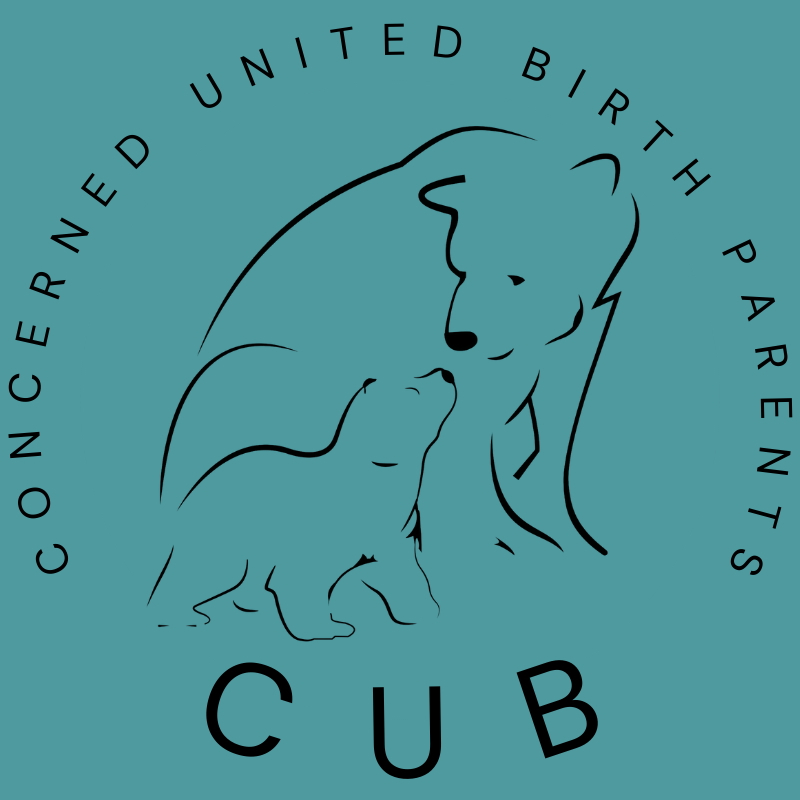Closed Adoption Era Mothers Never "Moved On" From Losing Their Babies to Domestic Infant Adoption
For decades, closed adoption was the norm in the United States. At the height of the closed adoption era in the 1950’s and 1960’s, pregnant and unwed women like us had little option than to relinquish our infants to adoption. The adoption process was shrouded in extreme secrecy and deception. At worst, we were forced to relinquish our babies and at best, we were coerced.
One thing is universal when we all speak up: we never got over losing our children to adoption.
We were told many things when we found ourselves pregnant and unwed and we can officially report after almost fifty years, none of them were true. In fact, all the things we were told turned out to be what we’d later learn was essential for getting us to suppress anything natural we felt while being pregnant or giving birth. As we sought healing, we discovered just how vulnerable we were back then and how the coercion we experienced made it more convenient for “those who knew better than us” to take our children away. It was convenient for them if we “tried to forget” our children. It was convenient for them if we “just moved on.” It was convenient for them if we believed that “we gave our children away because we loved them.”
Any mother in America who has lost a child will tell you it is an exquisite pain no woman ever truly gets over. Most people seem to understand this when the topic is not adoption but suddenly forget it when the topic is adoption. That makes our pain even more delicate as our grief is wholly disenfranchised from society because everyone thinks we “chose” adoption with fully informed knowledge and freely given consent. But here is what we know now that we didn’t know back then: it is not a choice when you do not have options.
It is important to know what was happening socially at the time we lost our children to closed adoption. When we became pregnant as unwed women, we were treated badly. Suddenly, every adult in our lives was concerned with fixing this “problem.” It didn’t matter how or with whom we had sex with to become pregnant: the consequences fell completely onto us and us alone. We were outcast and sent away to maternity homes where we endured very punitive environments and were subjected to a constant stream of manipulation tactics that slowly chipped away at our self-worth and autonomy. And then, in a ubiquitous and devastating act of coercive control, someone who “knew better than us” told us this: if we loved our babies, we would give them away.
And we believed them.
We were helpless, hopeless, and with no other options available to us, we surrendered our infants to strangers in utter defeat.
Our experiences were universal and have been documented in many books and movies such as The Girls Who Went Away, Philomena, The Magdalene Sisters, Short Film: Four Birthmothers For Mothers, and American Baby: A Mother, a Child, and the Shadow History of Adoption. This was a shameful time in history where pregnant and unwed women in most western nations were victimized in what has become known today as a forced adoption era and we are living proof that American women were not spared.
The trauma of losing a baby to adoption continues to affect us today. We feel guilt, shame, and sadness over having lost a child to adoption and these emotions can be incredibly difficult to deal with. That’s why it's essential for us to exercise agency and choice over our own lives today. We deserve to have a say in any adult relationship we choose to have, including but not limited to ones with our relinquished sons/daughters/non-binary persons we lost to adoption. It’s wrong, and in many ways offensive for policymakers to just assume a controlling role in our lives when it comes to this or any other adult relationship. We do not need protection from the state; we need a chance to heal.
Because our trauma is one of separation, it can be made more bearable with reconnection. When we hear well-meaning people like policymakers say they need to protect us, we feel untrusting and exasperated. It sounds like control and feels like manipulation because if they truly listened and understood what happened to us, they would champion adoptee equality knowing it gives all of us living with closed adoption a better chance to heal.
Our support for adoptee equality restores optionality, gives us a direct choice where we had none before (in the event adopted persons decide to search for us), and is rooted in our belief that all people should be treated equally under one fair and consistent law. We are against all forms of discrimination and we deplore the fact that our relinquished children—the ones we supposedly gave up to “a better life”—are living as second-class adult citizens today. We do not want to be a reason for this continued discrimination.
Yes, it is our names on their original birth certificates as having given birth to them but the birth event is their beginning, their truth, and we believe they have a fundamental right to know those things if they so choose. Let’s get out of their way and restore their basic human rights to know who they are and where they came from.
